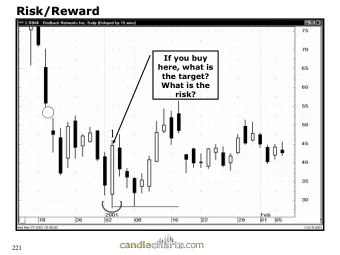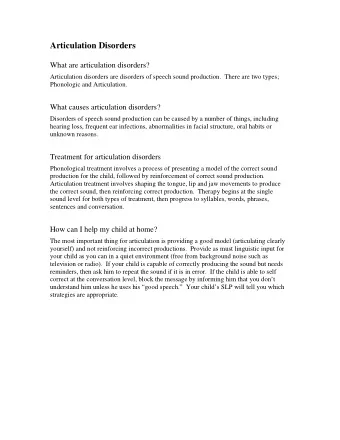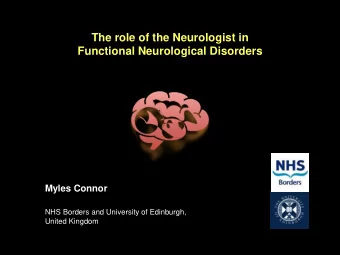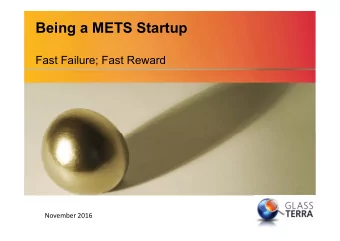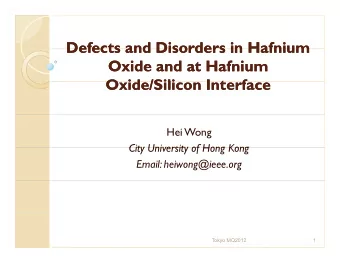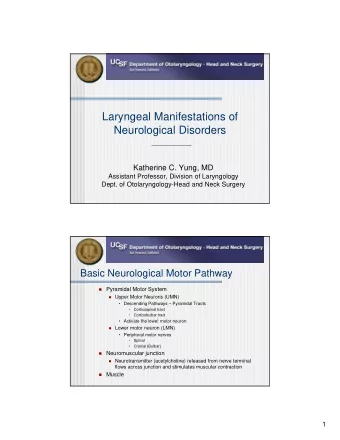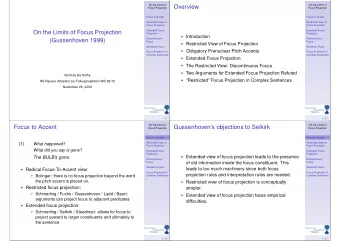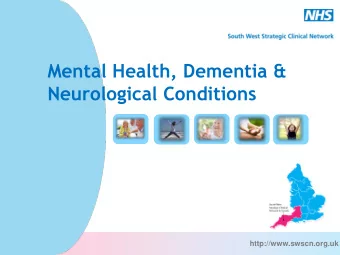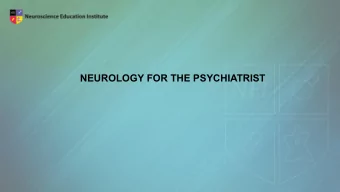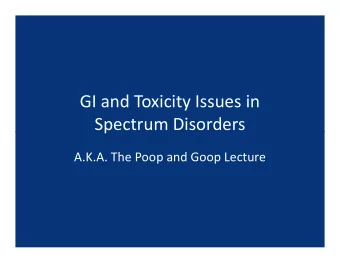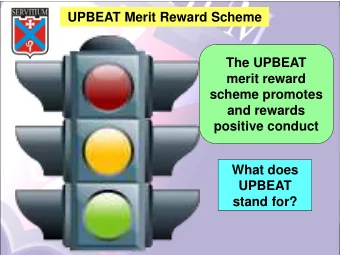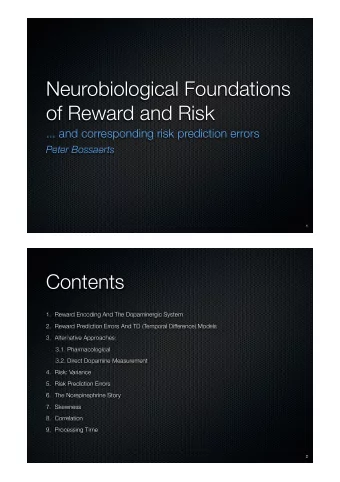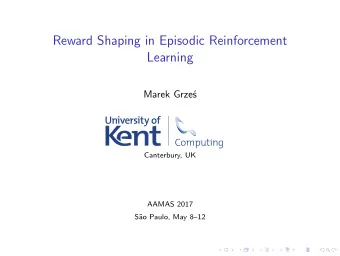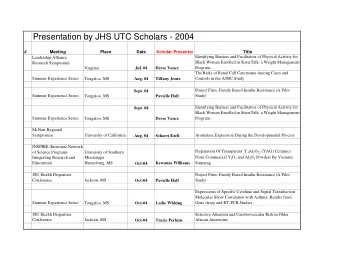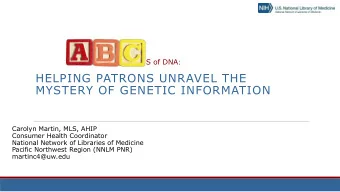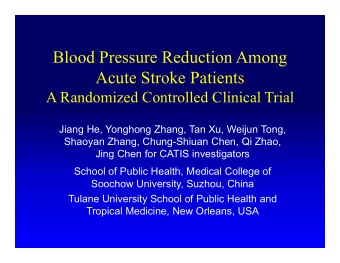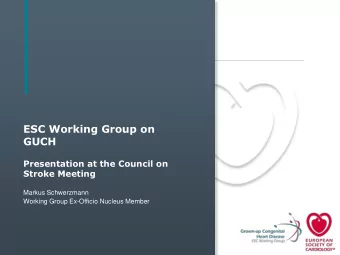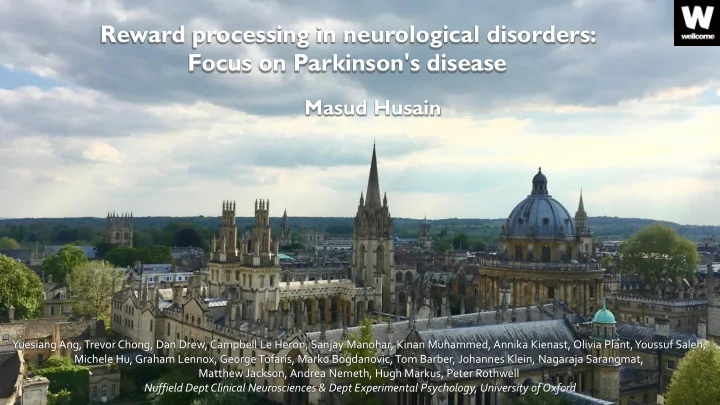
Reward processing in neurological disorders: Focus on Parkinson's - PowerPoint PPT Presentation
Reward processing in neurological disorders: Focus on Parkinson's disease Masud Husain Yuesiang Ang, Trevor Chong, Dan Drew, Campbell Le Heron, Sanjay Manohar, Kinan Muhammed, Annika Kienast, Olivia Plant, Youssuf Saleh, Michele Hu, Graham
Reward processing in neurological disorders: Focus on Parkinson's disease Masud Husain Yuesiang Ang, Trevor Chong, Dan Drew, Campbell Le Heron, Sanjay Manohar, Kinan Muhammed, Annika Kienast, Olivia Plant, Youssuf Saleh, Michele Hu, Graham Lennox, George Tofaris, Marko Bogdanovic, Tom Barber, Johannes Klein, Nagaraja Sarangmat, Matthew Jackson, Andrea Nemeth, Hugh Markus, Peter Rothwell Nuffield Dept Clinical Neurosciences & Dept Experimental Psychology, University of Oxford
Disclosures Lilly | Keynote lecture Otsuka Pharmaceuticals | Advisory board Research Funding | WellcomeTrust
Why do we do what we do? A framework for understanding motivation to action – and loss of motivation in apathy Husain & Roiser (2018) Nat Rev Neurosci
Brain systems for motivation Net value of an action involves evaluation of costs (effort) and benefits (rewards) Circuit level dysfunction Reward regardless of underlying pathology in apathy? Dopamine: identified as a key neurotransmitter Other potential circuit level / neurotransmitter targets? Haber & Knutson (2010) Pessiglione et al (2017) Brain Neuropsychopharmacology
Is the reward worth the effort? Cost- benefit decision making in Parkinson’s disease patients with or without apathy Reward Effort at stake required Force MOTIVATION / Rewards MOTIVATION / APATHY APATHY Feedback Le Heron et al (2018a) Brain
Apathy versus depression in Parkinson’s disease Apathy and depression can occur together but are dissociable too Skorvanek et al (2014) Acta Neurol Scand Study sample N = 151 non-demented PD cases Kirsch-Darrow et al (2006) Neurology Study sample N = 80 consecutive outpatient cases
Is the reward worth the effort in Parkinson’s disease? Is apathy associated with reduced sensitivity to reward or hypersensitivity to effort? Apathy not associated with reduced motor vigor PD patients made required effort if they accepted offer Le Heron et al (2018a) Brain
Reduced reward sensitivity or effort hypersensitivity? This task allows us to map out the space where people are prepared to work Proportion of offers accepted Proportion of offers accepted reduced in apathy BUT proportion of offers accepted not related to dysphoria Le Heron et al (2018a) Brain
Apathy: reduced willingness to work for low rewards But dopamine has a distinctly different effects on choices Dopamine’s biggest effect at high effort / high reward offers Motivated patients accept more low reward offers Effect of apathy on Effect of dopamine decision making on decision making Le Heron et al (2018a) Brain
Effort-based decision making for reward in SVD Also altered with apathy in CADASIL* (a form of cerebrovascular small vessel disease) * Cerebral Autosomal Dominant Arteriopathy with Subcortical Infarcts and Leukoencephalopathy
Apathy in CADASIL: also reduced work for low rewards CADASIL is a genetic form of small vessel disease Motivated patients accept more low reward offers * Cerebral Autosomal Dominant Arteriopathy with Subcortical Infarcts and Leukoencephalopathy Le Heron et al (2018b) Brain
White matter tract changes related to apathy in CADASIL Reduced fractional anisotropy compared to non-apathetic CADASIL cases Le Heron et al (2018b) Brain
Transdiagnostic approach: across three different diseases Apathy in SVD is associated with reduced willingness to work for low rewards N=83 Late-onset sporadic Parkinson’s disease CADASIL small vessel disease (SVD) Le Heron et al (2018a) Brain Saleh et al (2019) In prep Le Heron et al (2018b) Brain
Why do we do what we do? A framework for understanding motivation to action – and loss of motivation in apathy Husain & Roiser (2018) Nat Rev Neurosci
Reward for saccade task Magnitude of reward earnt depends upon response time Auditory cue at trial onset tells you Actual reward obtained Auditory� cue� of� maximum� maximum reward obtainable depends upon response time reward� obtainable “ 0p 10p 50p Maximum ” Saccade 1400ms - 1600ms Auditory cue Reward Target appears Muhammed et al (2016) Brain
Magnitude of potential reward modulates pupil response 5 4 Pupil Dilation (% Change) 3 50p Greater pupil dilation with 2 increasing potential 10p reward on offer 1 0p 0 -1 0 500 1000 1500 2000 2500 Time (ms) Target Appears Reward Cue 4 Pupil Size (Mean % Change) 3.5 50p 10p 3 0p 2.5 Muhammed et al (2016) Brain 50p 10p 0p 2
Pupil reward sensitivity and apathy Apathetic Parkinson’s patients show blunted reward sensitivity Parkinson’s Disease Pupil Reward Sensitivity ON 2.5 Pupil Reward Sensitivity 2 Non Apathetic 1.5 1 Apathetic 0.5 BUT pupil response not related to depression 0 ’ Non Apathetic vs. Apathetic -0.5 p<0.05 0 500 1000 1500 2000 2500 Time (ms) Muhammed et al (2016) Brain ’
Reward sensitivity modulated by dopamine Parkinson patients’ pupil reward sensitivity greater when ON But effect of dopamine evident in both apathetic and non-apathetic patients Muhammed et al (2016) Brain
Reward sensitivity blunted in apathy But dopamine increases sensitivity in apathetic and non-apathetic Non-apathetic patients ON dopamine are actually hypersensitive to reward Muhammed et al (2016) Brain
Pupil reward sensitivity also blunted in CADASIL apathy Reduced dilatation of pupils in anticipation of reward Le Heron et al (2018b) Brain
Reward processing in neurological disorders Brain mechanism underlying motivation and apathy Apathy is a common syndrome across brain disorders Dysfunction of ventral striatal – medial frontal systems Potential systems level targets for therapy Abnormal effort-based decision making for rewards Apathetic patients are less willing to exert effort for low rewards in PD and small vessel cerebrovascular disease In PD dopamine alters effort-based decision making but dopamine deficiency may not be cause of apathy Blunted reward sensitivity in apathy (pupil response) In PD and CADASIL, apathy is associated with blunted reward sensitivity. In PD dopamine can improve reward sensitivity – but across both apathetic and non-apathetic cases
Recommend
More recommend
Explore More Topics
Stay informed with curated content and fresh updates.

